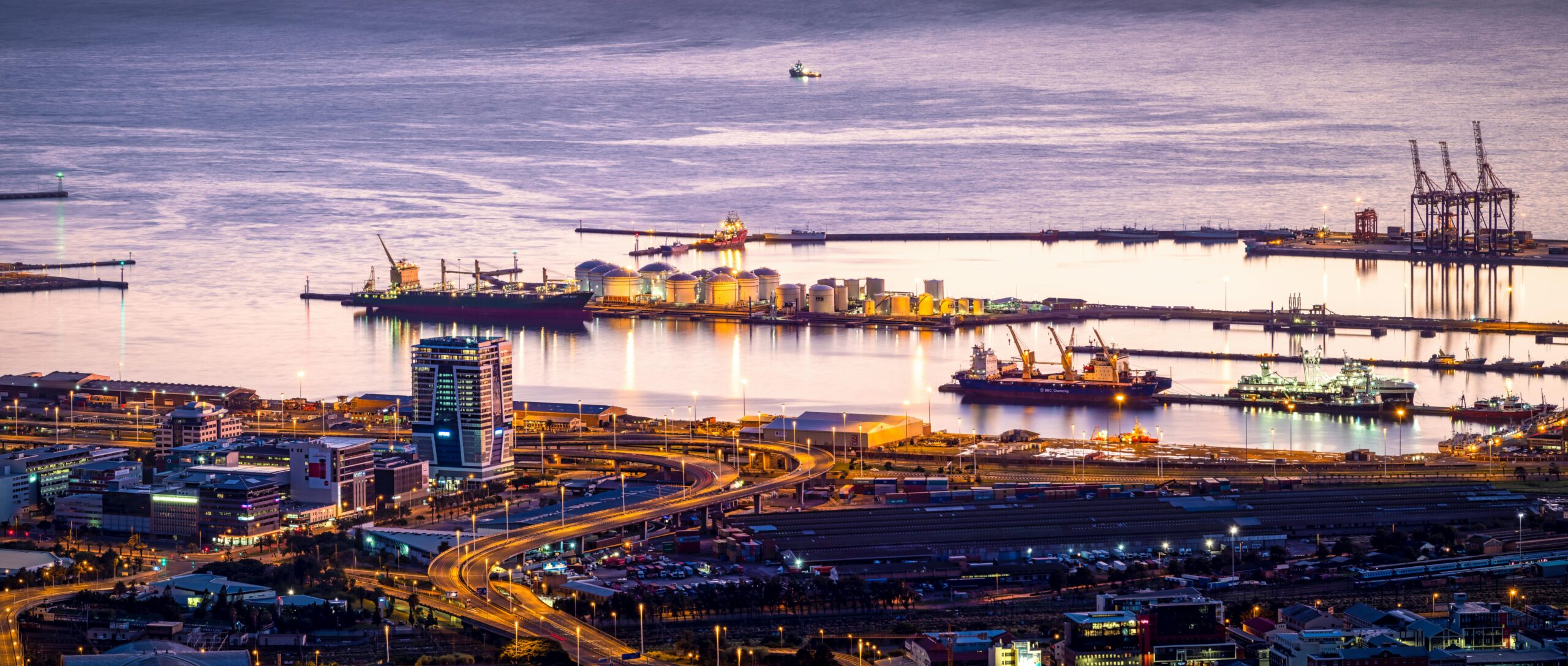Logistics News - 16 September 2025
Don’t let rate changes, port congestion, or customs compliance slow your business down. Contact our team at TSI today, and let us guide you every step of the way. Contact us
September 2025
South Africa’s Ports: Progress or Pain?
Headline News
The headlines speak of progress at our ports, yet the reality tells a harder story. Around 12 vessels are still waiting outside Durban, and Cape Town was forced to pause collections to clear backlogs. Congestion there now sits at about six days. Transporters queue for hours to collect cargo and if roadworks delay their arrival at the gates, they lose their slot altogether. This is not only unfair but also poorly understood, as clients are seldom aware of the daily challenges hauliers face.
On the international front, talks with the USA remain quiet, but we will update you as soon as there is movement. The South African citrus industry has already felt the effect of tariffs, with a noticeable drop in orders received so far. China will enter its Golden Week celebrations in October. Please book early, as factories and logistics providers shut down for a full week.
Frontline Insights
Transnet’s annual loss reduced to R1.9 billion, showing progress but reliability risks remain.
Cape Town moves more containers with new RTGs, though congestion persists.
Citrus exporters welcomed new rail slots, offering some relief to road pressure.
A freighter grounding in the Arctic is a reminder that global shipping risks remain high.
Durban’s long-term leases at the fuel hub secure most of SA’s imports.
South African ports reached record throughput, moving more than 101,000 TEUs in a week.
Executives are inspecting Durban Port to fast-track operational improvements.
Importers face volatility but can benefit by strengthening resilience and agility.
Transport weighed on GDP growth in Q2, even as mining and trade showed better results.
Saaff convened public and private stakeholders, marking a turning point in collaborative trade reform.
Top Story
Trade talks underpin a turning point for SA’s cargo industry – Saaff
Source: FreightNews, 11 September 2025
The South African Association of Freight Forwarders (Saaff) has launched a collaborative initiative with government regulators and private stakeholders to address inefficiencies in the country’s logistics and supply chains. The platform brings together SARS, ITAC, the Border Management Authority, and others alongside freight forwarders and clearing agents.
This is the first time in over 15 years that stakeholders have gathered without transactional disputes. Misunderstandings are being clarified, myths debunked, and solutions mapped. The goal is clear: a trade environment that is seamless, reliable, and less costly. Saaff believes this is a restorative moment that could align regulatory practices with business needs, reducing costs and strengthening South Africa’s global competitiveness.
Ports Report – Week Ending 12 September 2025
Durban Pier 1: 2 ½ days
Durban Pier 2 (DCT): 2 ½ days
Durban Point 1: 2 days
Cape Town (CTCT): 6 days
Port Elizabeth (PECT and NCT): 0 days
Knowledge Corner
Importer’s Code and VAT Number – Why They Matter
If you are importing regularly into South Africa, you need a valid importer’s code registered with SARS, usually linked to your VAT number. Without it, shipments cannot be cleared and may be held at the border until the registration is in place.
What you need to know
An importer’s code is mandatory if you import more than three shipments a year.
Your VAT number links duties and VAT payments to your business.
Incorrect or expired details cause costly delays.
Five-step action plan
Apply early. Registration with SARS can take weeks.
Keep your company details updated, especially VAT status.
Ensure every shipping instruction has your correct code and VAT number.
Work with your clearing agent to confirm all entries reference the right code.
Review your importer profile annually.
TSI tips
Apply before placing your first order.
Keep a digital copy of your registration certificate handy.
Ask your TSI controller to verify details before any shipment.
At TSI, we make sure your importer’s code and VAT details are correctly linked and kept up to date, so your shipments are not delayed unnecessarily.
What is an Importer’s Code and do I need one?
An Importer’s Code is a unique registration number issued by the South African Revenue Service (SARS) that allows your business to legally import goods into the country. You absolutely need one if you plan to import anything for commercial purposes. Without it, your goods will be held at the port, causing frustrating and costly delays.
What about a VAT Number?
A VAT (Value-Added Tax) Number is a tax registration number that all businesses in South Africa must have if their annual turnover exceeds a certain threshold. It is essential for importing because it is used to claim back the VAT you pay on imported goods, which can be a significant cost saving for your business.
Why are both so important for importers?
Think of these two numbers as your golden tickets to smooth, legal, and cost-effective importing. The Importer’s Code proves you are a registered importer with SARS, while the VAT Number allows you to manage your taxes efficiently and avoid paying extra on your imports. Together, they ensure that your goods move through customs without a hitch, saving you time and money.
Final Word
Don’t let rate changes, port congestion, or customs compliance slow your business down. Contact our team at TSI today, and let us guide you every step of the way.
The TSI Central Station Advantage:
Logistics isn’t just about moving goods; it’s about giving you control, clarity, and confidence.
Here’s why businesses choose us:
✔ Advanced tech for full supply chain visibility
✔ Real-time cargo tracking from origin to destination
✔ Data that drives better decisions and cost savings
✔ Seamless integration across all logistics services
✔ Expert team with 30+ years of experience
✔ Trusted by South Africa’s leading banks
Additional Services
✔ Ocean & Road Freight
✔ Distribution & Warehousing
✔ Customs Clearance & Brokerage
✔ Project Cargo Management
Are you frustrated with logistics?
Let us take the stress out of your supply chain with a free logistics health check. 👉 Book Your Review Today
Frustrated with logistics?
You don’t have to be. Let us simplify your life and your logistics, expereince true peace of mind.
Why Clients Choose TSI
Leveraging Logistics Expertise
At TSI Central Station, now in our 19th year, we don’t just move cargo. We take care of people. Logistics is about more than systems and schedules. It’s about keeping you informed, solving problems quickly, and making sure your cargo arrives on time, every time.
Service That Puts You First
From your first booking to final delivery, our team listens, responds, and acts fast. That’s why leading international businesses, exporters, and importers trust us to manage their supply chains with care and precision.
Our Promise
Real people behind the technology
Fast response and clear communication
Support at every step of your shipment

TSI Embracing the Future of Logistics

South Africa’s Logistics Network is Improving but Still Inconsistent
South Africa’s logistics system is showing gradual improvement, with stronger rail volumes and higher container throughput compared to last year.
In September 2021, TSI celebrated its 15-Year Anniversary. Here’s what our CEO, Clifford Blackburn, had to say about the first 15 years in business.
Q: What encouraged you to start TSI Central Station 15 years ago?
CB: There was a need for legitimizing the industry, transporters used to lie about when they collected cargo, the agent Read more here
